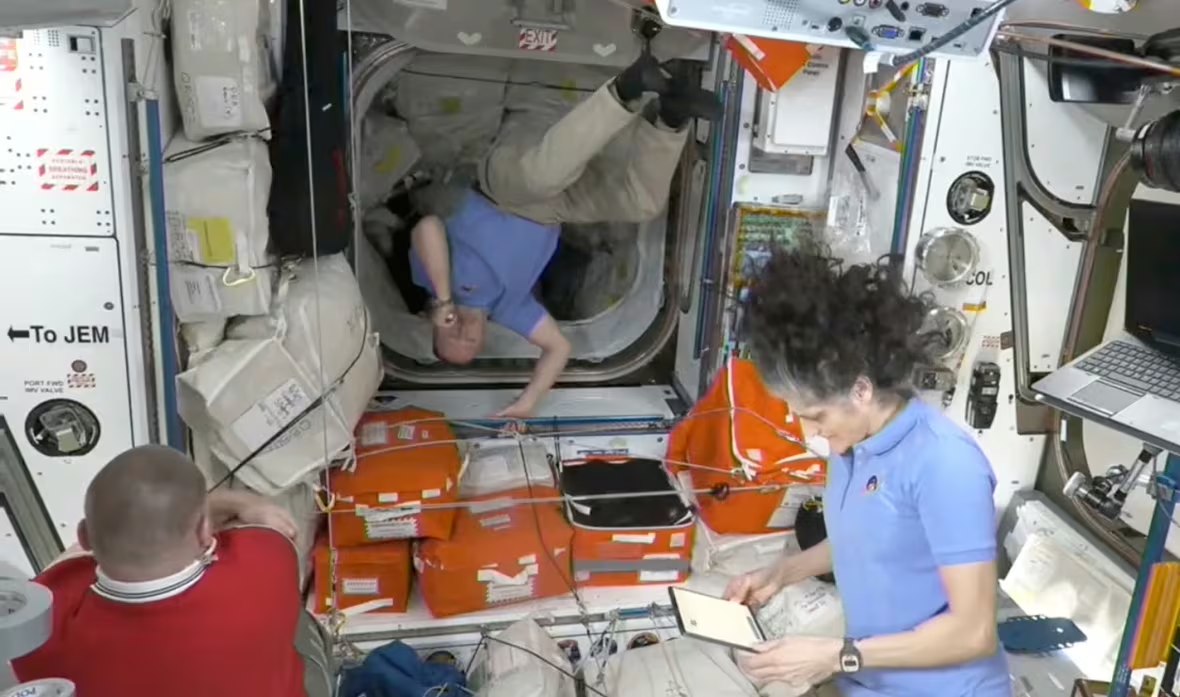As astronauts Butch Wilmore and Suni Williams get their land legs back on Earth, the effects of being stranded in space for nine months — and their recovery — will give scientists a chance to improve preparations for eventual, and even longer, space flights, say experts.
NASA aims to send humans to Mars as early as the 2030s; flights which, there and back, could take 21 months.
“The extreme environment of space, the radiation, the lack of gravity, even just those confined spaces, it can really take a toll on our health,” said Dr. Farhan Asrar, associate dean of clinical faculty relations at Toronto Metropolitan University’s medical school, who researches space medicine.
“Literally I would say pretty much from head to toe it can cause issues.”
Without gravity, bodily fluids shift upward, leading to facial swelling and increased pressure in the skull, which can affect vision.
On Earth, the pull of gravity on bones and muscles helps prevent bone and muscle loss. To try to counteract that, astronauts aboard the International Space Station (ISS) exercise for an average of two hours a day.
Canadian astronaut Jeremy Hansen describes Canada’s key roles in new missions to the moon, from the ‘amazing technology’ to ‘niche’ expertise in the evolving delivery of food and health care.
What’s more, the cardiovascular system changes, which can lead to difficulty regulating blood pressure upon return to Earth. Asrar pointed to one Canadian study that suggested carotid arteries of astronauts can age the equivalent of 20 years from just six months in space.
Heart and lungs, the balance mechanism in our ears, and our immune systems are also highly impacted by space flight, says Robert Thirsk, a former astronaut with the Canadian Space Agency and a retired medical doctor,
Thirsk trained at NASA with Williams and says he’s looking forward to speaking with her about how to improve training for Mars missions.
He says astronauts will need to be more autonomous on Mars, given that it takes 20 minutes to send a message from there to mission control — too long, for example, if a crewmate’s heart suffers an arrhythmia.
“I think health-care delivery is the number one issue that needs to be resolved before we’re ready to launch the first crew,” Thirsk said on Tuesday.
He says it’ll be essential to have a physician on board for the Mars crew, along with AI-enabled diagnostic and monitoring tools.

Despite their extended stay on board the ISS, others have been in space much longer than Wilmore and Williams. The record is held by Valery Polyakov, who was on board Russia’s Mir station for 437 days, or more than 14 months, in the mid 1990s.
Back then, Mir had an ultrasound on board to monitor changes to cosmonauts’ health. It was about the size of an ABM.
Now, Asrar says, the ultrasound on the ISS is the size of a gaming console.
Similarly, astronauts also use the Canadian Space Agency’s Bio-Analyzer, a portable tool that tests their blood, saliva and urine from just a few drops. Wilmore’s and Williams’s readings from before their trip will be compared with their condition now.
Thirsk says astronauts are made well aware of the impacts of space flight on their abilities, including stress. Self-care, teamwork, cross-cultural skills and the ability to both lead and follow are all important skills for their careers.
“I think the difference between a good astronaut and a great astronaut is mastery of some of these personality traits,” he said.






